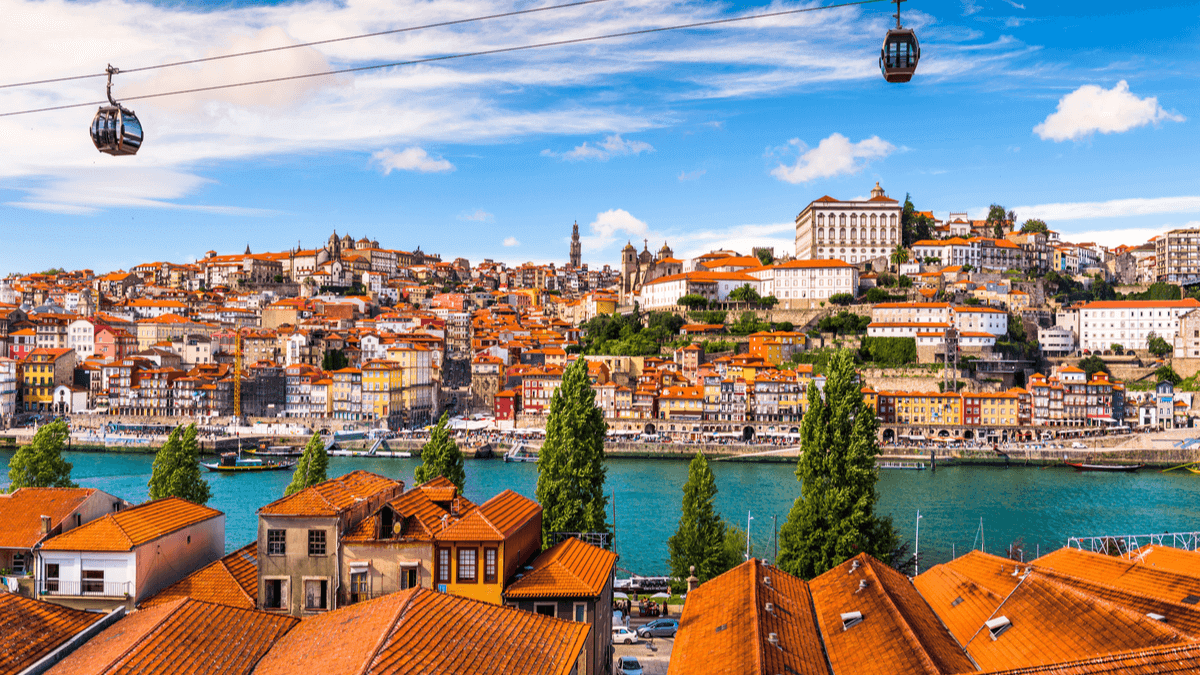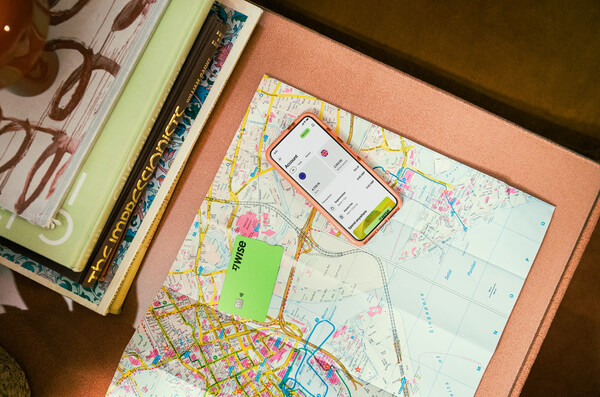Money and banks in Portugal
Portugal saw an increase in tourism of 10% in 2015, with 10.18 million foreign visitors. In fact last year was the best ever year for tourism in Portugal with...

This is intended to serve as a general guide. Always check with official sources for the latest government and health advice.
Opting for tap water is often the most eco-friendly and cost-effective way to stay hydrated while traveling. But when you're in a new country, knowing if the tap water is safe is crucial to avoid any unexpected health risks. If you're headed to Portugal, you're likely wondering: is its tap water safe to drink?
The quick answer is yes. This guide will clearly explain why Portugal’s tap water is safe, and detail its quality to help you prepare for your trip. We’ll also introduce the Wise card, a useful travel companion to help you save on spending during your time there.
| Table of contents |
|---|
Yes, tap water in Portugal is generally safe to drink throughout the mainland and major islands according to the Water and Waste Services Regulation Authority (ERSAR), with about 98.7% of all tap water in Portugal suitable for direct consumption.1 Its quality meets stringent national and EU quality standards, as defined by Decree-Law No. 306/2007 and subsequent amendments, which transpose the EU Drinking Water Directive into Portuguese law.2
While some residents may still choose bottled water or filters, this is typically for personal taste or preference rather than a concern about safety, as the water is subject to strict quality controls. As a practical tip, always check if your specific tap is safe for drinking, the ERSAR has a portal that allows you to check the safety of your municipality's tap water.1
The primary official government authorities responsible for tap water quality and regulation include the Directorate-General of Health (DGS) and the Water and Waste Services Regulatory Authority (ERSAR).2 They oversee the implementation of national regulations and the monitoring of water quality. The local entities responsible for water supply include municipalities and inter-municipal water systems, such as the Águas de Portugal Group companies.3 Water quality is subject to frequent monitoring, with daily checks for key parameters to ensure compliance with standards.
Portugal's tap water supply predominantly comes from groundwater sources, with the rest being surface water sources like rivers.4 Desalination is also used on some islands, such as Madeira and the Azores, to supplement the water supply.
Drinking water in Portugal undergoes a multi-step treatment process to ensure safety for human consumption. Depending on the local water source and treatment plant, this typically includes coagulation and flocculation to aggregate particles, sedimentation to allow solids to settle, filtration to remove remaining impurities, and disinfection, most commonly using chlorination, to eliminate harmful microorganisms. These steps are mandated under Decree-Law No. 306/2007 and monitored by water operators and ERSAR to ensure compliance with national and EU water quality standards.5
The mineral content and hardness of Portugal's tap water vary significantly by region due to local geology. Water is typically soft to moderately hard in the north and central regions and harder in the south.6 Hardness levels can range from 50 mg/L to over 200 mg/L as CaCO3.
The general taste profile is described as neutral and mild, but a slight chlorine taste may be present in urban areas as a result of the disinfection process. The taste also varies regionally based on the mineral content.
Staying hydrated is key to a great trip, and so is managing your travel budget wisely in Portugal. The Wise card is a simple way to save when you're spending internationally, be it on bottled water, food or shopping. You can spend in 150+ countries, including Portugal, at mid-market rate — basically the rate you see on Google. With no foreign transaction fees and low, transparent pricing, Wise usually gives you the best value for your money.

Simply create a Wise account for free, order a card and top-up to get started. Having a physical Wise card allows you to make chip and pin payments, as well as make some free ATM withdrawals each month for when you're in Portugal. You can get digital cards and add to your Google or Apple Pay wallet for instant use. Spend directly with the Wise account and let auto-conversion do the trick or convert in advance to EUR. You can hold and exchange 40+ currencies in your Wise account and spend the currencies you hold for free.
Wherever your travel takes you, the Wise card makes spending money abroad cheaper and easier.
This general advice does not take into account your objectives, financial circumstances or needs and you should consider if it is appropriate for you.
Please see Terms of Use and product availability for your region or visit Wise Fees & Pricing for the most up to date pricing and fee information.
No, boiling tap water in Portugal is not necessary for the public water supply, as it is generally safe to drink directly from the tap and meets strict quality standards.¹
The taste and quality of water can vary by region due to different water sources and mineral content. Water in the north and central regions is typically softer, while the south has harder water, which can influence its mineral taste.6
Yes, the ice served in restaurants and bars is generally safe to consume, as it is made from the public water supply that is deemed safe to drink.1
Some people in Portugal use water filters primarily for personal taste preference due to regional variations in mineral content or a faint chlorine taste, especially in urban areas.
Sources:
*Please see terms of use and product availability for your region or visit Wise fees and pricing for the most up to date pricing and fee information.
This publication is provided for general information purposes and does not constitute legal, tax or other professional advice from Wise Payments Limited or its subsidiaries and its affiliates, and it is not intended as a substitute for obtaining advice from a financial advisor or any other professional.
We make no representations, warranties or guarantees, whether expressed or implied, that the content in the publication is accurate, complete or up to date.

Portugal saw an increase in tourism of 10% in 2015, with 10.18 million foreign visitors. In fact last year was the best ever year for tourism in Portugal with...